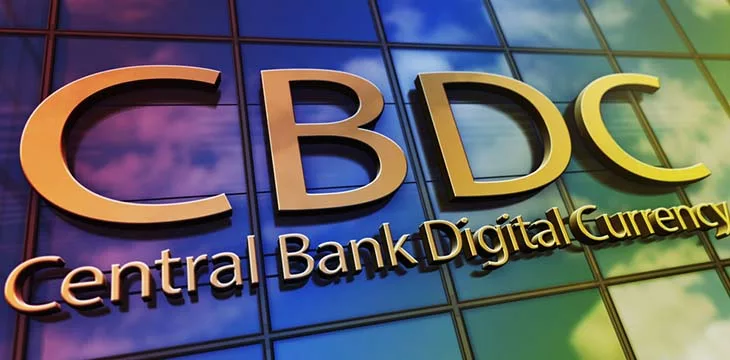|
Getting your Trinity Audio player ready...
|
U.K. legislators have called on the central bank to “proceed with caution” in developing a central bank digital currency (CBDC).
The Bank of England has been working with HM Treasury on a CBDC for years, and in February, they published a paper on the design of the retail digital pound. The design phase is expected to last until 2026, with the CBDC projected to launch by the decade’s end.
However, the central bank must approach the digital pound cautiously as without careful management, it could pose a systemic risk to the country’s financial and monetary systems, members of the House of Commons Treasury Committee warned in their report.
The committee collected feedback from the public on the potential CBDC, and according to the report, bank disintermediation is one of the key concerns. With the public able to switch bank deposits into digital pounds, it could exacerbate withdrawals from commercial banks in times of financial market distress.
Bank disintermediation is a common concern with CBDCs globally. In Germany, banks want to be at the heart of the development process to secure their role in a CBDC world, while Italian banks have set intermediation as a condition for their CBDC support.
The Bank of England (BoE) has acknowledged the disintermediation risk in its previous CBDC papers. Its solution is to impose a limit on digital pound holdings at £10,000-£20,000 ($12,678 – $25,356). This figure allows most residents to get paid in CBDC, and if everyone held the maximum limit, it would only amount to 20% of total bank deposits.
This limit should be reduced to match suggested limits in other jurisdictions, the MPs proposed. For instance, the proposed holding limit in the EU is €3,000 (£2,570).
Privacy is yet another key concern in the U.K. and beyond. The MPs say this could be mitigated through “robust regulation and legislated protections related to the ability of any future government to access people’s data.”
Privacy is a more prevalent concern in the United States. Digital dollar critics say it’s a government surveillance tool, and some draft bills are in the pipeline to quash the project before it gets on its feet.
Other concerns by the U.K. lawmakers included the acceleration of financial exclusion as the underbanked rely on cash and the high costs in the design and development process.
“It must be clearly evidenced that a retail digital pound will provide benefits to the UK economy without increasing risks or leading to unmanageable costs before any decision is taken to introduce it into our financial system,” commented Harriett Baldwin, the West Worcestershire MP who chairs the committee.
Baldwin reiterated the committee’s support for the BoE’s digital pound efforts but urged it to “proceed with caution and maintain a genuinely open mind as to whether one is actually needed.”
Meanwhile, the digital pound continues to receive criticism and opposition from privacy campaigners who believe it will give the government too much information about the population’s spending habits.
British civil liberties lobby group Big Brother Watch is one of the lead critics. Last week, it published a report tearing into the digital pound, claiming it will “spell the end of privacy.”
“Just as has been the case for international CBDC projects, the UK Government is yet to show why we need UK CBDC – particularly given the series of risks to fundamental rights and freedoms,” commented Susannah Copson, the organization’s chief legal officer.
To learn more about central bank digital currencies and some of the design decisions that need to be considered when creating and launching it, read nChain’s CBDC playbook.
Watch: Building CBDC systems on Bitcoin

 09-05-2025
09-05-2025 





